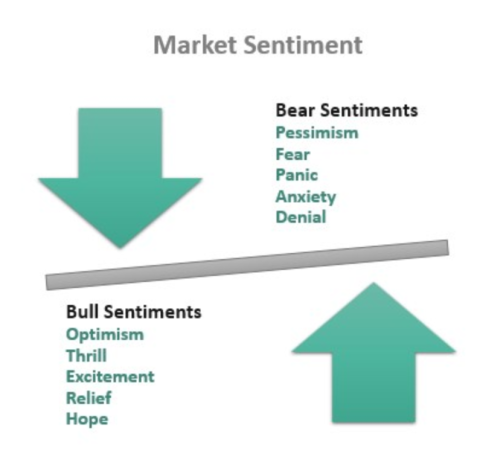Sentiment Shifts Markets
The sentiment on markets and the economy, move prices. As an example, there is a growing perception that this fall political outcomes may lead to lower taxation. Lower taxation tends to lead to higher growth, but higher economic growth tends to lead to inflation. That's alarming for the bond market.
Because of a recent shift in political sentiment, there are those that already think that lower taxation may be in the cards and markets are moving accordingly. For example, the interest rate on the 10-year Treasury moved significantly higher post-debate on expectations that there may be lower future taxation. It was a sentiment-based move.
The movement of bond prices reflects the changing perception from investors as to the direction of interest rates. Emotion causes movements. While markets might seem to be a collection of rational numbers, in reality sentiment and perception matter as well. It's something that we are continually examining.
A recent article highlighted the use of sentiment analysis in combination with fundamental research. Their description of sentiment analysis is as follows:
***
Begin quote
Market Sentiment Analysis Explained
Market sentiment or investor sentiment is the phenomenon through which the psychological positioning of the market, being positive or negative, is assessed.
Technical analysts and intra-day traders heavily rely on market sentiment analysis, which is a significant force driving the market. Of course, it does not necessarily mean that the market or the security is fundamentally strong or shows exceptional potential. However, it still can influence the technical indicators, thereby being a channel of profitability.
The long-term investor needs to be aware of the market’s sentiment. As a result, they make investments concerning fundamentals rather than trends or sentiments. For them, a stock on the rise might be a bad investment, and a stock showing bullish signs might be a good investment idea as they are looking at a long-term picture.
It is also important to know that the fundamental strength and prospects of the market or a particular stock are left out of the picture as the emotions and thought processes of external sources influence the movement in the market. These can be political changes, economic policy changes, organizational irregularities, etc.
In the great investor Warren Buffet’s words, “It is better to be greedy when others are fearful, and be fearful when others are being greedy.” It promotes a contrarian approach to investing, which value investors like Buffet are known for strategizing.
Image Source: https://www.wallstreetmojo.com/market-sentiment/
End quote
Source: https://www.wallstreetmojo.com/market-sentiment/
***
As investors, we do our best to capitalize on these perceptions. Being contrarian to some degree provides an opportunity to capture discounted valuation assets. It may take time to play out, but ultimately, we believe fundamentals will win long-term. Short-term sentiment certainly does move markets and allows for opportunities and avoidance of risk. Looking at both short and long-term perspectives, we think this is a wise way to invest in today’s highly emotional, highly changing equity and fixed income markets.



